This is probably my hardest introduction to write. Not because it’s the final Outback Wife story, but because this woman means so darn much to me.
I’ve been friends with Rach for about 20 years now, and have memories from way back, of us in my V8 ute, with Lee Kernigan cranking on the stereo, heading out to pull yabby traps. So many fun (and wild) memories.
I can’t remember who, but someone once told me, that if you want to grow as a person you should surround yourself with people that you can learn from, and people that inspire you to, everyday, be that little bit better. Rachael is one such person to me. She inspires me to be that much better and go that much harder.
She’s quiet, she’s unassuming. She’s one of the toughest, most capable, most understanding and most giving women I’ve ever met. She’s an incredibly talented stockwoman, and her knowledge and love of agriculture is second to no man.
I reckon one day, when we’re both wrinkled up, weathered old ladies I’m gonna try talk her into writing her life story. In her 36 years, she easily already has a book-worth of outback adventures under her belt…she’s probably going to have enough for a trilogy by the time she hits 60.
I’m so very lucky and thankful to call her my friend.
So please, meet the final Outback Wife for 2017, Rachael.
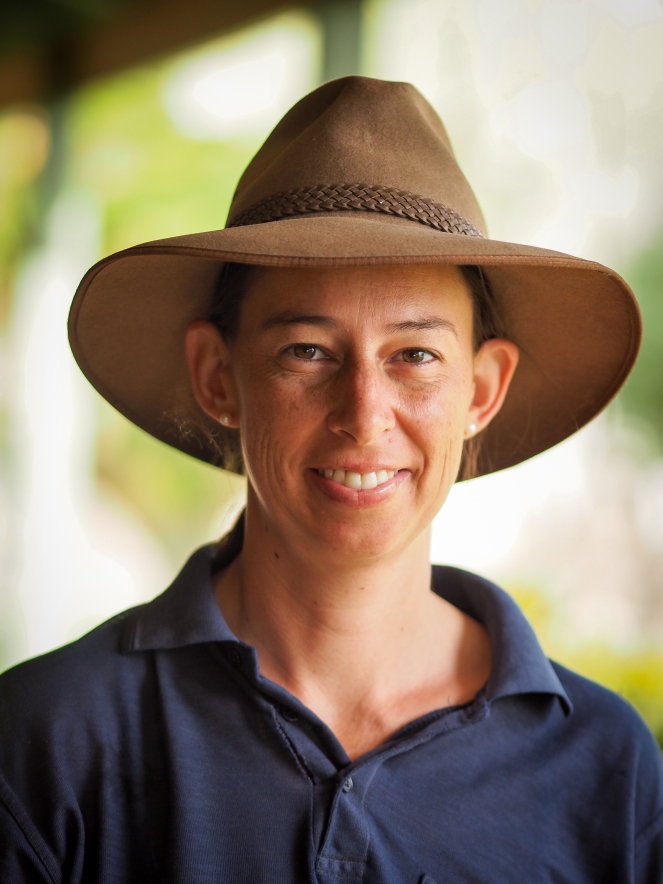
“I’ve always known I’d end up on the land. My dad’s a sheep farmer and did a lot of off-farm shearing when I was growing up. The farm has been in the family for 100 years now.
I was dad’s right-hand-man as a kid. I went everywhere with him as soon as I could. I think that instilled my love of stock. Shearing time, playing with the wool and the bales. As I grew up I spose I helped more, working the yards, mustering and handling the wool.
Over time I learnt to shear a sheep and learnt to roust. I worked as a roustabout for 12 months when I left uni. Even did a day pressing once…wasn’t my thing…it’s a hard job.
I did aquaculture at uni. Seems a bit bizarre now. In hindsight I should’ve just studied agriculture.
Then I picked up what was meant to be 3-months work at an ag college in the chooks and goats section. That three months became twelve months. In that time I managed the piggery and the workshop. Helped out in the sheep section.
Then I applied for a job at another campus. Assistant Farm Manager was a big step up at my new job. I was there for about four years.
There were so many learning opportunities for me there. I learnt how to run a dairy and a lot about beef cattle. I gained so much. I probably gained as much as the students in a way. I guess where there’s an opportunity to learn something new I always jump at it. If I’m going to do something I always want to do the best I can. I spent five months in Canada too, learning over there on rural exchange. It was wonderful. I’d encourage anyone with the opportunity to do it.
I did some hay cutting and baling one season, then a friend’s family purchased a cattle station in the Gascoyne and asked if I’d like to come up for the goat muster with her. It was another opportunity to do something new so I jumped at it. I’d always wanted to go mustering and learn about the station country.
I went up and the guys had already started mustering so we went out the next day on old motorbikes. Neither of us had ridden 2-wheelers for a while. We jumped on board and the first thing we came to was a creek crossing… 50m of boggy sand. The guys gunned their bikes and flew across, but I got 3m into it and kinda slowed and had my emu legs out trying to paddle across. It must’ve looked hilarious. I just felt so stupid, and it was only 10 minutes in.
So we got up to the goats and start moving them, then we came to a wash which was only 3m wide…I didn’t get stuck that time, but my friend did so I stayed to help her. By the time we got the bike out of the wash there was no one in sight but we knew the general direction they had gone and eventually someone came back to look for us. I made a great first impression.
We yarded during the heat of the day. The boys went off and sat in the water trough. It was 40+ degrees sort of thing in late November. When it cooled a little we moved on to the main yards. It was just a crazy first day.
It got easier as the week went on. Not so many emu legs…I learnt speed is key. I’d not ridden in sand like that before. I just didn’t grow up with that.
We woulda trucked out 1200 goats by the end of the week. I had to go straight back to Bunbury to be bridesmaid for a wedding. Thankfully I had long dress to cover all my bruises from bashing through the scrub.
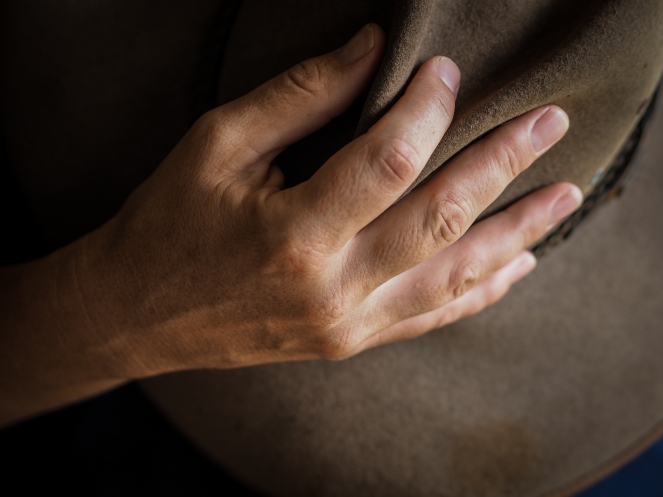
I returned to the station for the cattle muster a few months later. Feeling slightly more confident. Cattle are probably a bit easier to handle than goats. That’s where I met my husband. And from that muster I was offered a job on a station.
He was quiet but so confident in what he was doing. And there was something about the hat, the jeans, the bike, the boots…it just all fit together. We got to know each other during the muster and our relationship stemmed from that.
I fell in love with him and I fell in love with the station way of life.
So that was the start of my station life.
We worked side by side on the station. Living and working together seven days a week. It’s definitely not the easiest thing in the world. We both try and tell each other what to do.
I learnt to weld, drive bigger machinery, to drive a truck (I’m not very good, but I can do it if I have to). I could go off and do windmill runs on my own. It’s a 200km round trip to check 15 mills. There’re a couple of mill runs on the station. I was shown once, then sent off on my pat malone to do it the next time. It was daunting, but I’d done my best to memorise where I was going. I successfully made it home. I didn’t need to be rescued, which does happen. You definitely don’t go out without telling someone where, and an estimated time you’ll be back. The majority of the time you’re in radio contact or carry a sat phone for emergencies.
He came off his bike once. A kangaroo hit the front wheel and threw him off his bike. The handlebars twisted and hit him as he came off and ruptured his spleen. We didn’t know that at the time. Workmates found him ½ hour after the accident and brought him back to the homestead. They found me where I was working in the cattle yards. We quickly got organised and drove him 180kms to the town. He was flown from there by flying doctor to the city. He was in the major trauma ward. I was so nervous driving him in. Worried I was hurting him more driving with all the bumps in the road. We were lucky the station cook was a trained nurse. She was in the back with him and told me to drive quicker, speed was more important than the rough ride. I think she said ‘I think you’re going to have to get going’. I don’t remember much of the ride. We talked to him the whole way trying to keep him conscious. He’d bumped his head in the fall too.
Having lived on farms before, you’re isolated to a degree down south, but I think it was the times when I was alone on the station, doing a run or something, that I realised just how isolated it is here.
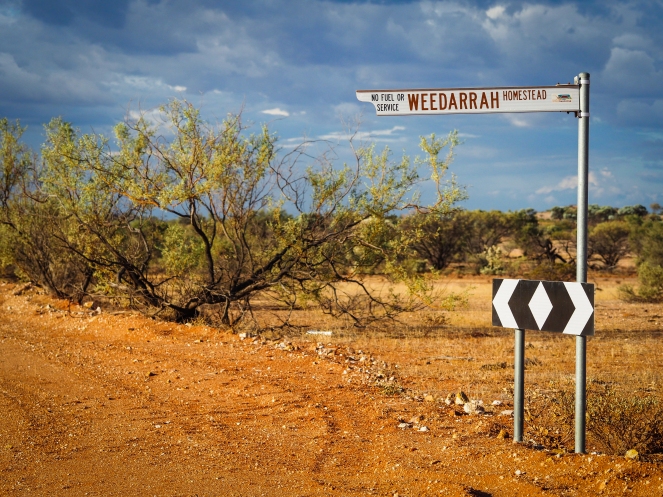
Yeah, I suppose you’d have to say, my first few years in the Gascoyne were probably the hardest the region had seen. We were hand-feeding stock, we were mustering and selling any saleable cattle. We were pulling off calves that were a day old and raising them by hand to save the cows. That drought was so bad. I can’t count how many calves I put down that had wild dog injuries. Going on windmill runs knowing you’d find stock that couldn’t stand and would have to put them down. I remember trying to stand them up so I didn’t have to shoot them. There was just no feed. Hand-feeding’s just not enough. They’re not contained in one area, it’s rangelands and the cattle roam looking for feed that just wasn’t there. Eventually they roam closer and closer to the mills, because they know there’s just no point roaming further. Heartbreaking. Some just give up.
At one point we had 300-400 calves we were hand-rearing in the old sheep yards. As they were big enough, we’d put them in the cattle yards and trucked them out to the sales with the other older stock. Stock numbers dropped drastically during those two years. It was two years of trying to keep cattle alive by hand. We agisted what we could. They had to be strong enough to travel to agistment. If they fall over in the truck when they’re weak then they’re just buggered. To me it was the cows I looked after. The familiar faces I’d see at the windmills. The cows that would give me a lick or stick its head in the ute. The weaners that are brave enough to take that extra step towards you, and then another step the next week…and then they were gone. I just love the animal husbandry side of being on a station. It’s not so much the country…it’s the stock that makes it for me. Whether it’s the sheep of my childhood or the cattle up here. I love them, I love working with them.
I’ve never looked at the cattle as money. Of course I understand it’s a business…I’ve grown up knowing farmers produce stock for a reason, but there’s a compassion and a pride in handling them quietly. I’ve always found it’s amazing what you can achieve when you handle them quietly.
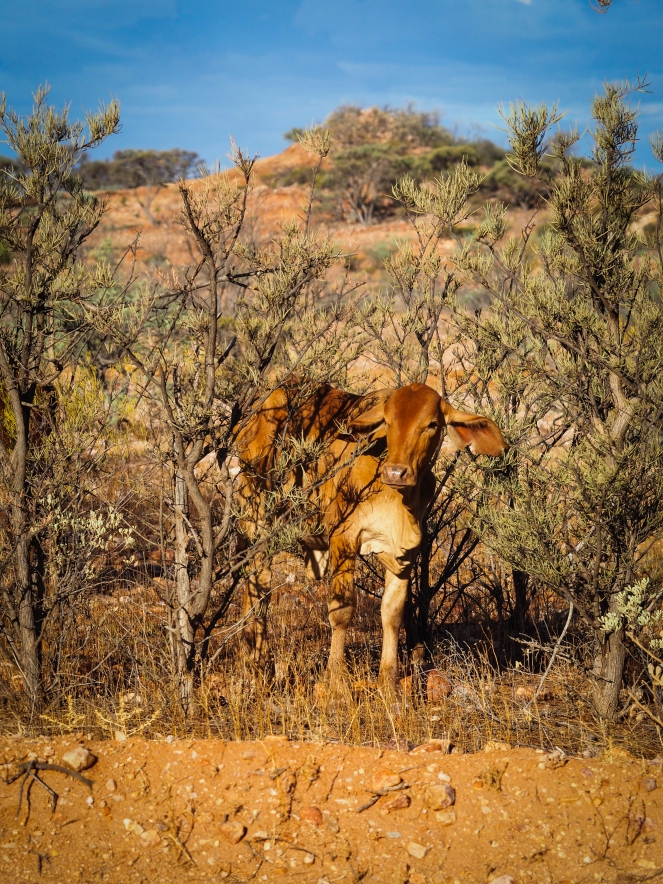
And then it rained.
And it rained and it rained and it rained.
I wasn’t at the station when the flood came. I’d gone away for Christmas and to plan my wedding. The crew left at the station did everything they could. They let stock out that were in yards in the hope they’d find high ground. They had to save themselves, spending a night on the roof before the chopper picked them up. The stock losses were huge because the cattle were so weak from the drought. And we’d concentrated cattle around the homestead to feed them, which meant they were right by the river. They didn’t really stand a chance a lot of them.
We drove straight back as soon as we could, 1,400kms. The roads were a mess. It was a challenge to even reach the station. EVERYTHING was full of silt. All the buildings, the cars, everything. The landscape had changed completely. I don’t know how to describe it. It’s hard to put it into words. In some places the riverbed had been scoured back to the rock beneath. It didn’t look like the home I’d left. The walls of our room had disintegrated because they were mud brick. A lot of our belongings had floated out and were gone down the river. But yeah, the rest of the houses the water went up and the water went down, but our room, being mud brick…the walls were gone and so was most of our stuff. We only got engaged 4 months before at the local race weekend, which created huge cause for celebration, but most of our engagement presents went in the flood. We didn’t have insurance as station workers. We had to start again. The generosity of family and friends was unbelievable. And I think people were more generous with our wedding gifts because we were starting again. We were so thankful. It was generosity we didn’t expect and it was overwhelming.
The clean up from the flood took months. We shovelled silt out of buildings focusing on the kitchen areas and living areas first so we could actually move back to the homestead. We couldn’t cook out there and had to get the water back on and power organised. The generator was still there but had gone under and needed repairs. The fuel tanks had washed away. Once we were living out there again we started focusing on getting machinery cleaned up before the rust did irreparable damage.
It was just something you dealt with and you just kept going. You focus on what’s to be done to get up and running again. A lot of people up here have trouble with depression at some stage. I think I’d call it that…depression.
We got married. The clean up took months. You can still find silt five years later, six years later, there’s still silt. The effects of the flood will be seen for a long time to come. It’s left scars on the place…scarred the people…scarred the homesteads. We try not to think about it everyday, but it still catches you unawares sometimes, there are reminders everywhere.
Internet access is a pretty new thing out here. Before, we barely had access, now it’s more reliable. Having access to social media has made it a lot easier to keep that connection with friends and family so far away. It provides more opportunity to be aware of what’s going on in the rest of the world. Because I think before, we were pretty cut off. Life just doesn’t just lend itself to sitting down and watching the news, its easier when the information is on demand. We can access it now when we have time.
I spose having a family has been my latest challenge. Starting a family. We’re lucky we have relatively close neighbours which is reassuring. Having someone nearby who’s an experienced mum. There’s just so much that can go wrong. I worry way more now, definitely. I’m so wary of everything. Snakes…I got one last week in the yard…a brown snake. When I see them in the yard I can’t let my little one out to play on his own. We live by the river which, while it’s not running all the time, when it does, it’s a worry because he LOVES water. Meningitis as well with the water, its always in my mind.
I’m expecting my second child now. I’ll go to another town 6 hours away where I have some family to stay in the last four weeks. The nearest hospital to the station is 3 hours away, but I can stay with family if I go a bit further.
The RFDS box; you always hope you don’t have to use it. Our nearest medical service is 300kms away so with a small child if something serious happens, I just hate to think about the time delay. But we do have the medical chest and it’s provided by the RFDS…it has a lot of stuff in there.
Every so often an old friend or someone will call through the stations. In the time I’ve been here I’ve met some really interesting characters. There was this one old pilot who used to muster up here and I remember hearing him call out on the radio one day as he flew past the house “another gloooorious day in paradise” as he sailed by. He just loves the country. And that’s all he said. I spose it’s heartwarming to hear people’s love for the place, and that you don’t have to have a full-on conversation. Just a simple remark over the 2-way was his way of saying g’day.
What else…with our family growing, we’ve started talking about the future for our kids. They’re only 2, and not-born-yet, but we have to plan because boarding fees are so expensive and our children have to go away for 6 years. It sort of creates uncertainty over our future in the station country.
But we’ll do whatever we have to for our kids. I hope we don’t have to leave, because I’d love to raise my kids on the station.”
RACHAEL FUNNELL, 36
‘Weedarrah Station’, Western Australia
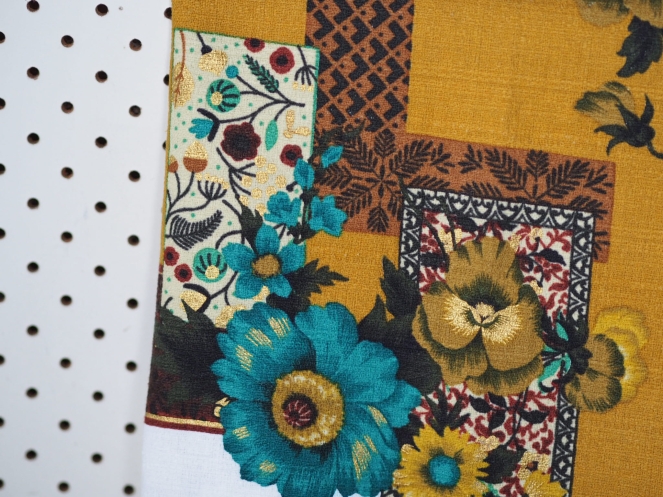
** the fabric photo is of a test strike so please note that the white bit on the bottom won’t be there on printed yardage 🙂

Oh another awesome girl!!! LOVE these stories and these kick arse women! Go Rach! Lots of Spong love x
LikeLike
You have inspired a beautiful fabric Rachael! I am in awe of you and the other outback wives who work so hard and go through so much! Well done you! Thank you Cathi for the stories and the gorgeous fabrics! Well done you too!
LikeLike
The differences you’ve brought out in these stories is lovely – women who are older and then Rachael who is younger – all such hardy souls. I guess the one resounding characteristic of all these women is “if I can do/survive that, I can do/survive anything”, all while remaining in love with station life. Thank you again so much for sharing this way of life with your readers!
LikeLike
I have so enjoyed reading each and every one of the OutBack Wife stories!! Thanks so much to all the women for opening up and sharing themselves and their lives with all of us!!
LikeLike
Thank you for taking the time to write up these stories. I’ve teally enjoyed meeting these can do women.
LikeLike
I love meeting these amazing women. Thank you so much for sharing their stories.
LikeLike
I’ve loved reading these stories & the incredible resilience of these Outback Wives. I’ve shared them with my daughters & my hubby. We’ve laughed , cried & reminisced about our own strong family members. Hubby thinks that Betty & I would be a good match , I’m known for being a talker. Can’t wait to see the Outback Wives Quilt hanging in Houston. I know what you’re saying about the quilts there , they are the most amazing quilts but they don’t have a story like this quilt does.
LikeLike
wow Rachael. Its been 20 years since we were at High School together and look how much you have fitted in, in that time. I’m in total awe of what you have achieved, especially driving a truck. Go you!
Maybe see you at the reunion next year?
LikeLike
So, so inspiring, and so much not really known well about women on the land, particularly for those of us who live in the cities.
LikeLike